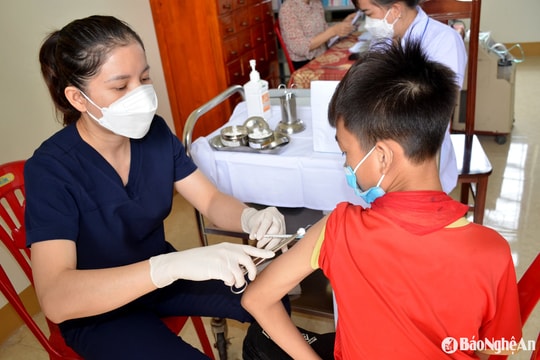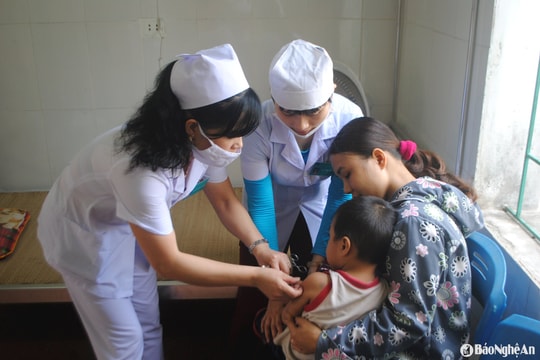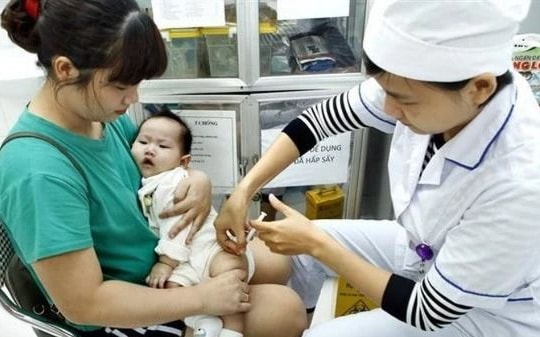How countries are rolling out Covid-19 vaccinations for children
Many countries around the world are vaccinating children aged 12-15 and under 12 to protect young people from Covid-19, but some countries have not been able to deploy due to lack of supply.
As schools reopen, Covid-19 restrictions are eased and the Delta variant continues to spread around the world, parents are concerned about how best to protect their unvaccinated children.vaccination.
Previous data suggested that children were less likely to develop severe Covid-19, but the emergence of the Delta variant has changed that.
Many high-income countries, such as the United States and most of the European Union (EU), have already vaccinated children aged 12 and older against Covid-19, and are now allowing vaccinations for younger groups. Meanwhile, vaccine inequities persist globally. In some countries, which are still struggling to provide first and second doses to high-risk groups, childhood vaccination remains a “distant dream”.

Countries vaccinating children under 12 years old
Cuba became the first country in the world to vaccinate children as young as two years old against Covid-19 in October. The Cuban government uses domestically produced vaccines that it says are safe for young children. Cuba's initial plan was to focus on vaccinating health workers, the elderly and people living in areas hit hard by the pandemic. But after a surge in cases among children due to the fast-spreading Delta variant, the country also prioritized vaccinating children so it could safely reopen schools.
During the pandemic, most in-person classes in Cuba have been suspended. Instead, students are learning mostly through educational television programs, as many families still lack internet access.
Chile, China, El Salvador and the United Arab Emirates (UAE) have also approved vaccines for young children. In Chile, children as young as 6 can get the Sinovac vaccine, while in China, Sinovac and CoronaVac are approved for children as young as 3. In El Salvador, children as young as 6 may soon be vaccinated. In the UAE, where the Sinopharm vaccine is approved for children as young as 3, the government says vaccination is not mandatory.
In the US, children aged 5-11 could be eligible for the vaccine this fall, after approval from the Food and Drug Administration (FDA). Pfizer executives said the company plans to submit vaccine data from studies involving the 5-11 age group by the end of October.
Countries vaccinating children 12-15 years old
Britain has been more cautious than many other European countries about vaccinating children. Children aged 12-15 in the UK will be able to receive a Covid-19 vaccine, according to advice from health officials.
In late May, the European Medicines Agency (EMA) approved the Pfizer/BioNtech vaccine for use in children aged 12-15, based on a trial that showed that the immune response in that age group was comparable to that in people aged 16-25. The EMA approved the Moderna vaccine for children aged 12-15 in late July.
France, Denmark, Germany, Ireland, Italy, Spain and Poland are among the EU countries that have launched vaccination campaigns for 12-15 year olds.
Switzerland has been vaccinating children since June.
Sweden will vaccinate children aged 12-15 by late autumn, Prime Minister Stefan Lofven said.
Meanwhile, the UK currently has no plans to vaccinate children under 12, according to Chris Whitty, England's chief medical officer.
Mr Whitty said the vaccination of 12- to 15-year-olds was being introduced in the hope of reducing the spread of the virus in schools. However, he noted that vaccination was not a “silver bullet” and that measures to reduce the spread of the disease needed to be maintained. Currently, UK health officials recommend a single dose of the vaccine for 12- to 15-year-olds.
Countries struggle to vaccinate children
While more than 42% of the global population has received at least one dose of a Covid-19 vaccine, only 1.9% of people in low-income countries have received at least one dose. This leaves billions of people around the world at risk of illness and death from Covid-19.
Haiti only received its first doses of the vaccine in July, 500,000 doses donated by the United States through the COVAX program. So far, less than 1% of Haiti’s 11.4 million people, nearly a third of whom are under 14, have been vaccinated.
While no country has so far completely ruled out Covid-19 vaccination for children, vaccine hesitancy among policymakers could play a key role in countries that appear uncertain about vaccinating children.
In the Democratic Republic of Congo, just over 120,000 doses have been administered, or less than 0.1% of the country’s 90 million people. In September, the Democratic Republic of Congo received 250,000 doses of the Moderna vaccine donated by the US through COVAX.
However, vaccine skepticism in the Central African country remains high.
More than 1.7 million doses of the AstraZeneca vaccine arrived in Kinshasa in March, but the government delayed the rollout after reports of rare blood clots following vaccination. The country has since sold about 75% of its vaccine shipments.
President of the Democratic Republic of Congo Felix Tshisekedi has received a Covid-19 vaccine and said “by doing this I want to show people that vaccination is really necessary and there is no need to worry.” President Tshisekedi said his wife had also received the vaccine and urged others to get vaccinated because “it saves lives.”
The change in messaging could help boost vaccination rates in the coming months, but it’s unclear how it will impact childhood vaccinations in a country where misinformation about vaccines is rife, and where about 70% of health workers said they would not get vaccinated earlier this year.




.jpg)



